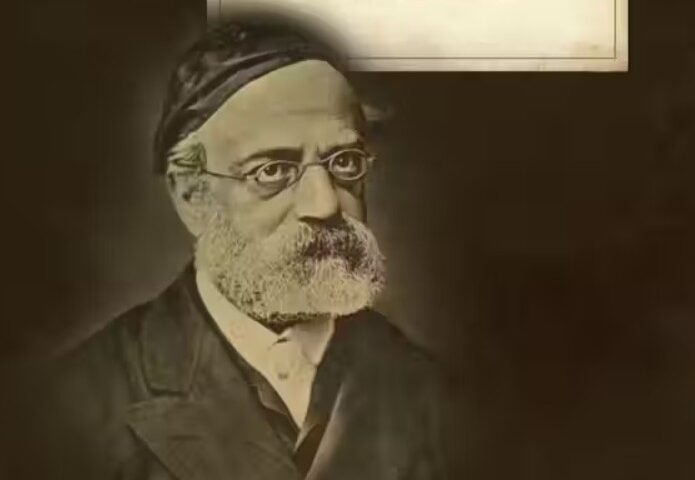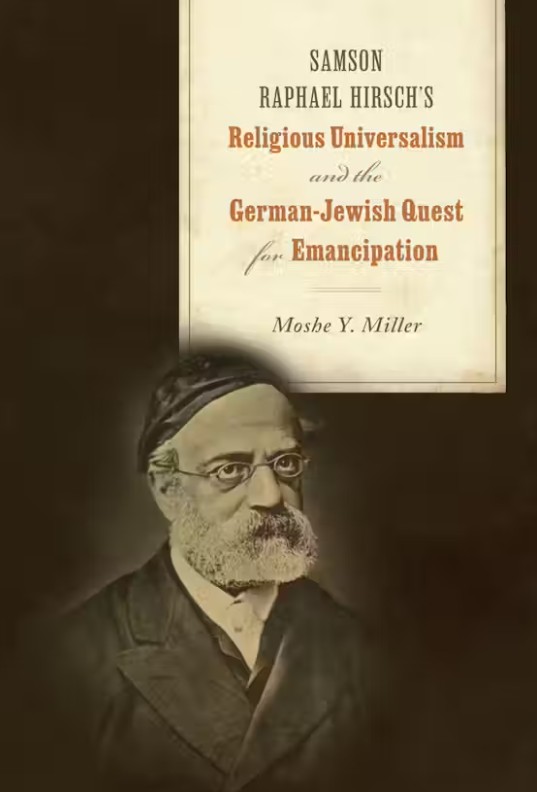RESPONSE: Rav Hirsch and Jewish Distinctiveness

 I thank Raphael Thurm for his in-depth and favorable review of my 2024 book, Samson Raphael Hirsch’s Religious Universalism and the German-Jewish Quest for Emancipation (available open access at TRADITION, Winter 2025). I am also grateful for his citation of an only-once-published 1843 German essay by R. Hirsch that I had not seen, but which further supports my book’s central thesis, as Thurm notes.
I thank Raphael Thurm for his in-depth and favorable review of my 2024 book, Samson Raphael Hirsch’s Religious Universalism and the German-Jewish Quest for Emancipation (available open access at TRADITION, Winter 2025). I am also grateful for his citation of an only-once-published 1843 German essay by R. Hirsch that I had not seen, but which further supports my book’s central thesis, as Thurm notes.
I found several points made by Thurm to be quite illuminating and thought-provoking, yet several others seem to either misrepresent what I wrote or fail to recognize that the issue raised is actually addressed in the book. I only wish to mention one such example here. Thurm writes that “[a]mong Hirsch’s enlightened messages were: Jews as a people are no different than Christians and possess no distinctive biological propensity for superior spiritual potential (117, 132).”
The first clause is completely inaccurate, as on neither page cited (nor anywhere else in the book) is there a claim that compares “Jews as a people” to “Christians [as a people].” The text cited refers to Jews and non-Jews, not Jews and Christians. Of course, Jews as a people are different than Christians, in Hirsch’s view; his entire life was dedicated to reminding his fellow Jews of this. Hirsch’s point of departure from the Particularist school of thought (quite prevalent to this day in the Orthodox community) was his rejection of innate Jewish superiority over non-Jews: it is the Torah that makes us better, and a Jew who does not observe Torah is not “better” in God’s eyes than an upright gentile.
As to the second clause (“possess no distinctive…”), this is imprecise: what I cite is Hirsch’s commentary to the narrative of Korah’s rebellion, where Hirsch writes that Jews are not born innately holy already; instead, they must spend their entire lives striving to achieve holiness. Hirsch stresses that Korah’s error lay in his conflating what we are called upon to be with what we are right now. In his words: “they [must] not mix up what they are with what they should be, [should] not imagine themselves already holy because they are hallowed to a holy calling, but they should rather keep this holy calling of theirs always before them as the goal set by God for all their endeavors.” Naturally, there must exist within Jews the capacity to observe all of the mitzvot of the Torah (their “holy calling”), whereas non-Jews are not called upon to do so, being mandated in the far less demanding—and thus less holiness-generating—Seven Noahide Laws. Hirsch thus does not reject what Hazal refer to as “kedushat Yisrael,” which is not a biological but a spiritual trait.
I once again thank Raphael Thurm for his positive review and for our always congenial correspondence, and I encourage readers to read the book themselves and reach their own conclusions.
Rabbi Moshe Y. Miller, Ph.D., is Associate Professor of Jewish History at Touro University’s Graduate School of Jewish Studies and its Lander College for Men, and Associate Professor of Judaic Studies and Deputy Chair of that department at Touro’s Lander College for Women.
